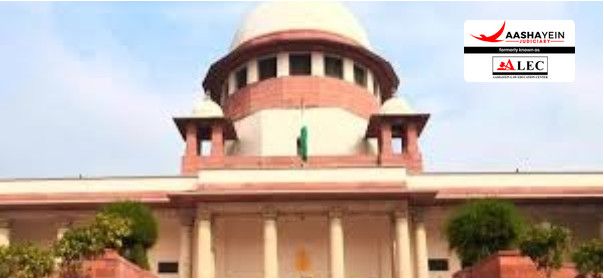A Bench comprising of Justice Abhay S. Oka and Justice Ujjal Bhuyan
Introduction:
The case raises important questions regarding the legality and implications of an ex parte stay granted by the Delhi High Court on an order discharging an accused in a murder case.
Facts:
Sudershan Singh Wazir, a Sikh leader and former President of the Jammu and Kashmir State Gurdwara Parbandhak Board, was accused of being involved in the 2021 murder of former National Conference MLC Trilochan Singh Wazir. On October 26, 2023, the trial court discharged Wazir and three co-accused, while retaining charges against another accused. However, the Delhi High Court stayed the discharge order in revision proceedings and directed Wazir to surrender, arguing that his release following discharge had become invalid. Wazir challenged the High Court’s decision, and the Supreme Court issued notice on November 11, 2024, to consider the matter.
Issues:
- Whether an ex parte stay on an order of discharge can compel the accused to face trial before the discharge order is set aside?
- What are the implications of staying a discharge order in terms of the accused’s liberty and due process of law, and whether this infringes on their rights?
- Whether the High Court’s action of staying a discharge order and ordering the accused to surrender is lawful?
You can also read the Blog by visiting [Blog]
For more information, visit [Aashayein Enquiry Section]
Contentions of the Petitioner:
Wazir contended that the High Court’s ex parte stay on his discharge order was unlawful, as it effectively subjected him to trial without setting aside the discharge order. He argued that the stay rendered his discharge invalid, thus violating his right to due process under Article 21 of the Constitution. He further pointed out that the High Court’s decision undermined the basic principle of granting interim relief in aid of final relief, as the stay allowed the trial to proceed without any final ruling on the discharge.
Contentions of the Respondent:
The Union of India and the victim’s counsel argued that the Delhi High Court had exercised its powers under Section 397 read with Section 401 of the Criminal Procedure Code (CrPC)(Now Section 438,442 of the BNSS), finding that the discharge order was prima facie flawed. They contended that the stay on the discharge order was necessary to ensure the accused did not escape the trial if the discharge order was ultimately found to be wrong.
The victim’s counsel also argued that the High Court's decision did not automatically mean Wazir would face trial, as it was based on the premise that the discharge order was incorrect and could be revised.
Court’s Analysis:
Justice Oka questioned the rationale behind the ex parte stay, stating that it effectively allowed the trial to proceed despite the discharge order not being set aside. He observed that such a stay rendered the discharge order invalid without a final judicial determination on it.
The Court expressed concern over the potential violation of Wazir’s Article 21 right to liberty, as the ex parte stay led to his surrender without addressing the legality of the discharge order first. Justice Oka highlighted that the accused was being made to face trial despite being discharged, which was problematic.
The Court noted that the Sessions Court and High Court would review the case in due course, and any interim relief or decision on the stay should align with the final outcome, not prematurely force the accused into trial.
Conclusion:
The Supreme Court raised significant concerns about the impact of ex parte stays on an accused’s liberty, especially when the discharge order has not been set aside. The Court questioned the procedural correctness of staying a discharge order and directing the accused to surrender, emphasizing the violation of due process rights and Article 21.

